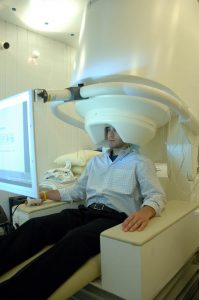
Back-to-school season is here, and you know what that means: long study sessions, furiously flying flashcards and endless rounds of quizzing your partners and having them quiz you. Before too long you’ll want a break. That just might be what you need.
A 2019 study suggests that taking breaks can help the information you’ve just learned in a study session solidify in your brain. “Everyone thinks you need to ‘practice, practice, practice’ when learning something new. Instead, we found that resting, early and often, may be just as critical to learning as practice,” said Leonardo G. Cohen, M.D. of the NIH’s National Institute of Neurological Disorders and Stroke (NINDS) and a senior author of the study, in a release.
The study, Bönstrup et al., A Rapid Form of Offline Consolidation in Skill Learning, published in Current Biology in April 2019, hinges on a concept in psychology called memory consolidation. Memory consolidation is a well-established aspect of learning, but what the NINDS team’s study suggests may be a new application.
Memory Consolidation: Making It Stick
If you think of your brain as a computer, your short-term memory is like RAM, while long-term memory is the hard drive. What happens when you shut your computer off without saving? You lose your work. Memory consolidation is your brain’s “save” button, the process that solidifies memories in the brain and makes them available for recall in long-term memory.
Short-term memory, as one researcher puts it, is “a pattern of neural firing that represents a particular idea.” Short-term memories degrade in a few hours to a few days and are believed to be stored in the hippocampus.
While short-term memories are forming in the hippocampus, long-term memories are forming in the neocortex. These memories can last from days to decades. Every time the memories are recalled, the neural firing gets stronger. Synapses that pass electrical signals from one brain cell to another develop an affinity to each other the more they are fired together to recall the memory.
Memory consolidation, then, is the process by which the synaptic chain gets stronger. Neuroscientists have known for decades that consolidation happens during periods of rest, but the NIH study suggests that rest period can be brief and can come much sooner after forming the memory than was previously believed.
Break for Beta Waves

The 27-participant NIH study captured the brain wave activity of healthy volunteers as and after they performed a standard procedural memory test. Volunteers typed the same five-button sequence into a computer while a powerful magnetometer measured the tiny magnetic field neurons produce as they interact. They typed for 10 seconds and rested 10 seconds, for a total of 36 times.
Performance was measured by the tapping speed of correct sequences. The researchers differentiated between two types of learning: micro-online and micro-offline. Micro-online learning was the tapping speed difference between the beginning and end of a session. Micro-offline learning was the difference between the end of one session and the beginning of the next.
The volunteers got faster until about the 11th trial, on average, when it leveled off (possibly due to fatigue or boredom). Micro-online learning was negligible, wrote the study’s authors, while micro-offline learning was “substantial.” They weren’t getting faster as they typed, but as they rested.
The brain waves provided the clue. Beta rhythms—the only brain pattern that correlated with speed improvements—were more active during the rest period. Beta waves suggest active engagement, and the researchers think the volunteers’ brains could have been replaying the typing sequence, the neurons firing together and the memory consolidating.
Implications for the Future
It’s true that the scope of this study was limited to motor learning. “Whether these results apply to other forms of learning and memory formation remains an open question,” states Dr. Cohen. But this research builds on other evidence that points to short breaks being beneficial for memory, learning and performance.
It might be a good idea to stop for a snack, pour a glass of water or take a quick walk during an intense study session. Another suggestion: gamify your studying. Many games have built-in breaks in the form of matches, bouts or rounds.
Make Learning a Game
Gamification—the use of game elements in a non-game setting—is an easy way to take short mid-session breaks, and evidence suggests gamifying learning can be helpful for engagement and retention. You can set up teams and a leaderboard to add an element of competition, or tell a story with metaphors to the subject matter for narrative-based learning.
So-called serious games, games in which the main goal is education instead of entertainment, are another avenue to gamify your study sessions. Well-designed serious games can keep players engaged with their study materials and wanting more when the session ends.
Medical and nursing students and healthcare professionals can sharpen their diagnosis skills with a few rounds of Occam’s Razor. This rapid-fire study aid challenges players to match symptoms with conditions. By taking turns answering questions, players can get a short rest before it’s their turn to really get those beta waves oscillating.
For students interested in creating a narrative, squaring off as Apothecary Healers versus Lords of Pestilence in Defenders of Soma can help make vital concepts of infectious disease and public health stick in their minds come test time. But regardless of whether you choose Occam’s Razor, Defenders of Soma or another fun, engaging title in Nerdcore Medical’s catalog, it’s probably about time for a coffee break.

